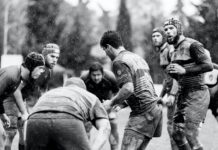The costly consequences of maintaining the Hunter / Farmer Myth
Many so called “experts” claim that there are two types of salespeople – Hunters and Farmers.
Salespeople, so these experts claim, are either one or the other. Consequently they fit one sales position or another. In my experience, having spent decades working with salespeople at every level in a wide variety of segments, salespeople don’t fit into these neat stereotypes.
The myth about Hunters and Farmers in Selling has been overtaken by a business reality.
Before we crack the myth let’s take a look at where the concept came from in the first place.
The person credited with starting the concept of ‘Hunters and Farmers’, which has been adopted by some sales managers and many business leaders, was the American sometime radio talk show host and psychoanalyst, Thom Hartmann. He initially proposed the farmer / hunter metaphor to explain the origins of what we now know, as Attention Deficit Hyperactivity Disorder (ADHD*) to help his own son (who suffered from ADHD) adjust to the condition.
Some of the characteristics that have been defined for people who have ADHD include:
Find it hard to concentrate; makes careless mistakes; does not seem to listen; avoids difficult tasks; becomes easily distracted and are disorganised and forgetful; does not follow through on instructions and can’t finish work.
This (hunter / farmer) theory was extrapolated to those salespeople who are labelled Hunters implying that they have ADHD and anti-selling contradicting characteristics. However, there is no proof to assert that ADHD and Hunters are associated in anyway. This is how myths start. What we do know is that salespeople come in all shapes and sizes and many can be successful given the right conditions.
The term Hunter has become a default term for new business development. It is not uncommon to hear sales managers describe Hunters as hard selling, cold-callers who deal with buyers where benefits are limited to narrowly framed needs. Farmers on the other hand are often viewed as being more “customer-centric”, solutions oriented and able to develop trust. If one listened to the “experts” Hunters are brutish, self-centred and uncaring, and Farmers are gentle focused, sensitive and trustworthy. If that wasn’t bad enough, many recruitment consultants conduct personnel assessments to identify if a candidate is either a Farmer or Hunter.

A popular tool used to assess sales personalities and identify “the right kind of personality for a salesperson” is a ‘personality profile’ assessment known as DiSC**. This assessment comes up with these same conclusions, though it doesn’t make use of the descriptive titles Hunter or Farmer. Usually, these reports are delivered with a bullet-point summary about the characteristics of the person and the kind of work that should be assigned to the individual.
The reports include recommendations for hunters and those candidates who are farmers similar to this:
The candidate is mostly a Hunter and is best suited to:
- Bringing in new business
- Working in new sales territories
- Focusing on prospect conversion
- Sales that require minimal post-sales follow-up
- Tends to sell best when on his / her own
- Comfortable in pushing for a close
The candidate is mostly a Farmer and is best suited to:
- Optimising sales in existing accounts
- Comfortable in identifying additional buyers
- Proactive in building relationships
- Matches product benefits to diverse needs
- Good at solving customer problems Demonstrates attention to detail Meticulous in fulfilling administrative responsibilities
Here is the challenge. If one assumes that Hunters have specific characteristics that Farmers don’t, and vice versa, then:
- Hunters aren’t interested in solving customer problems and farmers aren’t interested in closing deals; yet, in today’s market place, salespeople unable to help buyers solve problems and then offer solutions with some degree of confidence, aren’t likely to succeed.
- Farmers have some unique ability that gives them exposure to senior executives and hunters can’t develop trust that is the foundation of a sound business relationship with C-Level decision makers and yet, if salespeople can’t get to build trust-based relationships with decision-makers they aren’t likely to get the business irrespective of whether they are hunters or farmers.
The costly consequences of maintaining the Hunter / Farmer Myth
These conclusions (made by various consultants) make no sense whatsoever. Employing hunter and farmer sales teams increases costs and often confuses buyers. In addition, the potential benefits of shared knowledge, experiences and synergies are lost. Worse, sales managers, already under pressure to manage complex sales teams, are now being asked to lead two diverse groups, often with conflicting objectives (hunters with a supposedly new business focus and farmers with a relationship focus).
Effective sales development has demonstrated that with the right training and coaching in a sales organisation that is strategically aligned, and where sales managers are doing their job in leading (rather than merely managing) the sales force, coaching and mentoring, then the right type of profile for professional salespeople is a more realistic blended characterisation of both hunter and farmer.
Those organisations who have a better understanding and develop their own benchmark for what ‘good salespeople’ should look like, and should be doing, are the ones that are gaining incremental share of spend and capturing more of the support of their target market, simply because buyers are working with people who are professionals rather than people who have only half the competence needed for the job.
*we acknowledge that the medical jury is out about the authenticity of ADHD as an actual disorder.
** DISC is simple quadrant profiling system and is similar to MBTI. They are most useful in helping people understand different communication and decision making styles of people. These tools were never designed as proper psychometric assessment tools and they do not provide an in-depth analysis of the intricacies of personality. However, many people still use them when recruiting





























